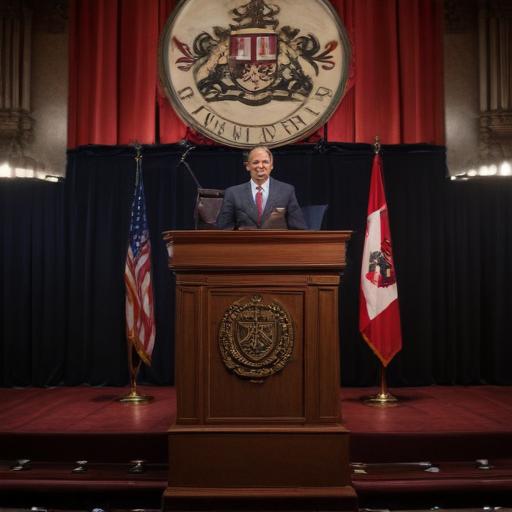In a thought-provoking debate that emerged from the heart of Harvard University, a prominent professor and a controversial blogger faced off over the pressing issues of democracy and higher education. Danielle Allen, a professor of political philosophy and former Democratic gubernatorial candidate, and Curtis Yarvin, a right-wing writer advocating for an absolute monarchy, drew a crowd of about 100 students and public attendees near Harvard Yard.
This exchange comes at a time when both individuals feel targeted by an administration that appears intent on undermining elite educational institutions and asserting greater presidential control over the rule of law. The debate highlighted the contrasting visions both speakers have for America’s political future, as they explored the responsibilities of academia in fostering open discourse around contentious ideas.
Allen expressed her belief in the importance of guiding students through challenging materials. “When students ask for help processing material they’re encountering, that’s my job to help them,” she noted, reaffirming her commitment to intellectual engagement. The absence of protests during the event allowed for a rare opportunity to discuss Yarvin’s often polarizing views without interruption, providing insight into his ideology, which many consider highly controversial.
Yarvin is known for his radical notions of governance, suggesting that American democracy be replaced with a model resembling an absolute monarchy or a corporate leadership structure. He posited that many societal issues stem from failures in governmental management, an assertion he connected to broader critiques of elite institutions like Harvard. Meanwhile, Allen staunchly defended democratic ideals, arguing that the protection of freedom and equality must remain paramount. She warned that historically, absolute power has led to the erosion of individual liberties, challenging Yarvin’s claims that centralized authority could yield more effective governance.
Both figures acknowledged the existing need for reform within democracies. Allen advocated for changes such as eliminating party primaries to enhance democracy’s effectiveness in serving the population, while Yarvin asserted that elite institutions have become too influential and unaccountable in the governance discourse.
The debate not only provided a platform for contrasting ideologies but also reinforced the necessity of open dialogue in academia, especially as it relates to current political and cultural challenges. David Vega, a Harvard graduate who moderated the event, highlighted the value of listening to diverse viewpoints to foster healthy campus discourse.
This debate serves as a reminder of the critical role academic institutions play in shaping democratic ideals and providing students with the tools to engage with different ideologies constructively. Despite the controversial nature of the subject matter, the opportunity for civil debate underscores hope for a more inclusive environment where varied perspectives can be examined thoughtfully.
